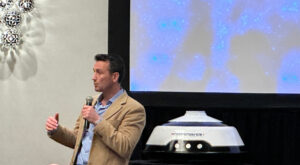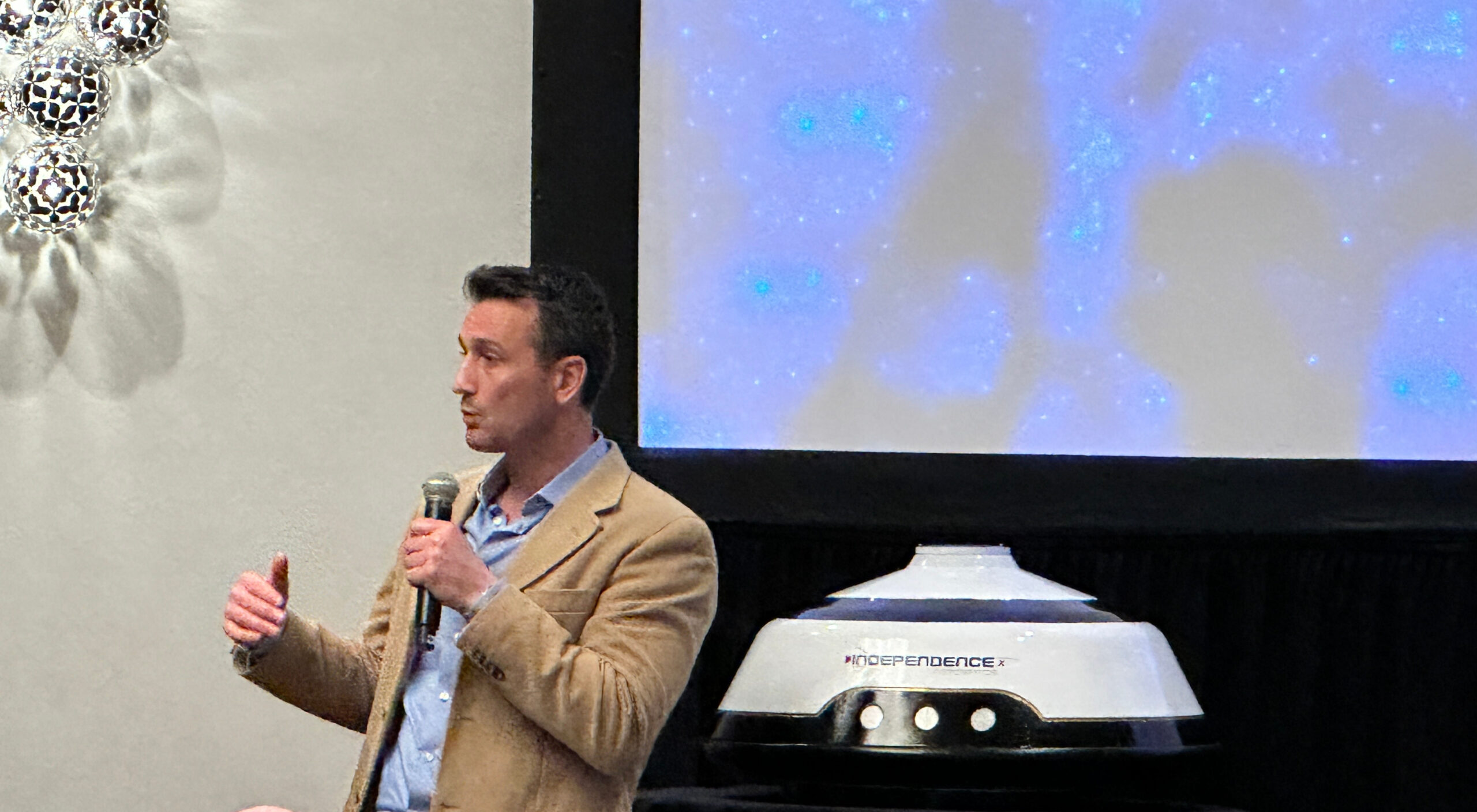Don’t get caught with your pants down in space! That was the advice given to the audience at SXSW on March 14.
In a session peppered with double entendres, four professional medical researchers and scientists explored the taboo subject of sex in space.
Who will be the first kid born in space? That is unknown, but if Dr. Egbert Edelbroek has his way, the first conception in space will take place in just 2 years. He is the founder and CEO of SpaceBorn United, and at the SXSW session he showed a space capsule that will herald in a new era for humanity.
Within the capsule conception will take place, “and then the first five or six days of embryo development. We have finished the prototype, a mini-lab with a life support system that enables this conception. It provides artificial gravity without which the health of the embryos would be compromised.” Within the mini-lab will be the space capsule that returns to Earth, and that is what was on display (shown in the lead photo).
“We are taking assistive reproductive technology into space. We need to protect the embryos from the violent re-entry to Earth by cryogenically freezing them exactly as it’s being done today in IVF clinics. This mission is planned in two years’ time.”
Edelbroeck puts the advance in a rework of the language used by Neil Armstrong when he became the first person on the Moon: “A small step for a baby, a baby step for humankind.”
Dr. Shawna Pandya, a physician with the International Institute for Astronautical Sciences, went through a list of rumours about astronauts and cosmonauts who might have had sex in space. On a Russian space station, cosmonauts who were married to other people “were reported to have got close, but both were married on Earth so if anything happened it would have been the first extraterrestrial extra-marital affair. Things get harder in space,” she said slyly.
“When we talk about sex in space,” Pandya stated, “it’s not just about copulation, it’s about interpersonal dynamics, it’s the act of lubrication (fluid physics dynamics are different in space), gamete production, implantation, embryonic development, post-natal development, the act of birth in space. I will just leave it there to let you know how much of the tip of the iceberg that we talk about with regard to sex in space.”
Dr. Simon Dube of the Kinsey Institute also mentioned the effects of radiation in space as a major concern. “I think there’s plenty of ways to make sexual interaction in space feasible. You can think about the sleeping bags in the International Space Station. It’s pretty small, two people could probably fit in and stay close. The easier aspect is also to go manually: solitary masturbation. But I’m not as worried about the mechanical component of sex in space. I am worried about people falling in love, breaking up, and how this would influence the crew dynamics. Sex is not just about producing viable offspring, we have to take a broader view of these questions.”
Edelbroek says “we shouldn’t want sex in space in the next couple of decades because of all the challenges, but we want to make it feasible. The way to do that is to first study those different stages of reproduction using technologies like IVF. That’s exactly what we’re doing at SpaceBorn United: to make natural reproduction in space possible.”
Photo by C Cunningham: Dr. Egbert Edelbroek with the space capsule.
Visit SXSW.com for more reports on the events this week.

